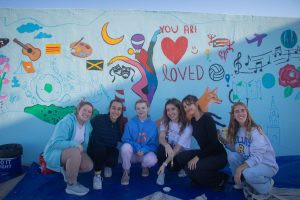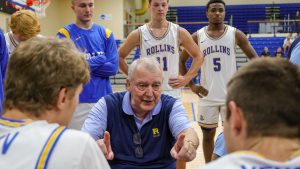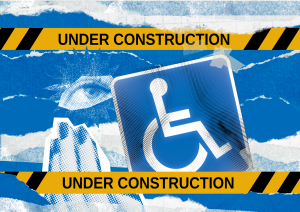Twelve years – that’s how long it has taken for the city of Orlando to pass an amendment to Chapter 57, an ordinance that enacts non-discrimination protections in housing, employment and public accommodations on the basis of gender identity. This ordinance was first proposed in 2002, however this objective was a revision to a 1973 ordinance that did not include sexual orientation or gender identity and expression. The opposition in 2002 was great and many took issue against the proposition. On August 11 of this year, the decision was unanimous. So far, eighteen states and the District of Columbia have passed non-discrimination laws based on gender identity. In 2009, Rollins College amended our Equal Opportunity policy to be inclusive of gender identity and expression.
Dr. Lisa Tillmann, Professor of Critical Media & Cultural Studies at Rollins, serves as the coordinator of faculty and administrators at Rollins on the 2014 Chapter 57 proposal. Since 2001, she has been working with her fellow colleagues and Orlando Anti-Discrimination Ordinance Committee on LGBT-related human rights initiatives. She considers social justice and self-interest to be the fuel behind college administrators’ involvement in city politics. The proposal written to Orlando city commissioners by her and fifteen members of faculty and staff at Rollins invokes a sense of duty by our city to be proactive in their mandates. She declared that, “Rollins has a vested interest in being able to attract the broadest, deepest pools of faculty, staff, and student applicants and to retain our top talent-which entails a welcoming, inclusive environment. On ethical grounds, citizenship is at the core of Rollins’ mission.”
A report entitled ‘Injustice at Every Turn’; compiled by the National Gay and Lesbian Task Force, presents data that emphasizes the impact of anti-transgender bias. In summary, what was found from surveying 6,450 transgender and gender non-conforming study participants is staggering. The report states, “78% of those surveyed who expressed a transgender identity or gender non-conformity while in grades K-12 reported alarming rates of harassment.” In the workplace, “47% of people said they have experienced an adverse job outcome because of being transgender or gender non-conforming and 71% of people attempted to avoid discrimination by hiding their gender or gender transition.” Similarly, “57% of people delayed their gender transition.” Overall, 16% of those surveyed said they had been “compelled to work in the underground economy for the sake of income.” Concerning housing discrimination, “19% of people reported having been refused a home or apartment and 11% reported being evicted because of their gender identity/expression.” There are also some cases of homelessness because of these acts of discrimination. Overall, “63% of the participants had experienced a serious act of discrimination-events that would have a major impact on a person’s quality of life and ability to sustain themselves financially or emotionally.”
According to Professor at Rollins Dr. Lori Coffae, we must engage, academically and civically, as a community to further ourselves; “The ordinance’s passing allows us to better achieve that overreaching goal.” On August 24, the Federal court ruled the Florida Marriage Ban unconstitutional. The Human Rights Campaign website stated “Since the Supreme Court’s historic marriage rulings last year, there have been 21 consecutive federal court decisions that bans on marriage equality are unconstitutional.” Florida is making great strides for the LGBT community and the momentum cannot cease. Dr. Tillmann reflects on what lies ahead for the civil rights of the transgender community – “The culture has changed and is changing, but a lot of important work remains.” Although we can agree that twelve years ago social media was not quite as advanced as we know it today, it is undeniable that it is a useful tool in facilitating a variety of opinions and issues to be heard. Rollins student Allie Quinteros ‘15, says, “I believe educating ourselves is one of the best tools we can use to create our own voice and become involved. Although the use of social media may prove to have a lot of potential through gaining awareness, I think it also may silence more individuals who fail to realize how important their words truly are to the community.”
How can Rollins students make a difference in their community? Along with the myriad organizations on campus that devote themselves to community involvement, another way students can make a difference is through using their voice. Dr. Coffae says it best:
I believe language can shape reality and that if students want to make a difference, then an amazing place to begin is through writing. The ordinance was crafted in language, through the written word – writing’s power to make a difference is undeniable! Through rhetoric and writing, we can create equality!”












Be First to Comment